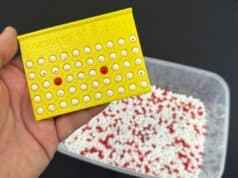I had a good long chat with a former client (from my J&J days) the other day. I call him “The Synthesizer,” and no he's not an electronic keyboard. We're working together on a business journal article about their Lean transformation in the hospital laboratory and it was such a pleasure to hear the update on their progress.
I call him The Synthesizer because he's always reading, always thinking, always learning… and that's why they've been successful with Lean.
And when I say “successful with Lean,” it's the type of leadership and organization that would probably be successful with just about any approach. And there's no room or need for “process improvement turf battles” as we've seen here on the blog recently (and often the very ugly side of it). By “any approach,” I mean THEIR approach – they've created something that's unique to them, based on different congruent theories and methods.
I'm a huge fan of the Lean philosophy and approach, obviously. But I try not to spend much time in any “Lean vs Six Sigma” battles that often take place. Sure, I have my criticisms — I think the belt stuff gets out of hand sometimes and Six Sigma statistical rigor is often unnecessary and a bit overkill-ish, but if people use Six Sigma (or integrate it with Lean) and they get results – then great. I won't denigrate people who use Six Sigma. You'll note from previous “discussions,” I've never denigrated the John Seddon approach — I've criticized the individual behavior that I've experienced (such as blanket attacks against Lean and calling people names in place of reasoned argument).
But, anyway, what I'm passionate about are things beyond Lean:
- Improving healthcare (everyone can have access to safe, effective care or prevention)
- Making sure people aren't miserable in the workplace
Lean offers a lot to further those two goals. But, personally, I like to draw on related ideas from aviation safety, the Quint Studer approach, and Dr. Deming (who I really consider to be an integral part of Lean). If you can accomplish better, safer, less expensive (I won't say “cheaper”) healthcare by other methods, then GREAT. More power to you. It's the improvement that matters, for people and for society.
Back to my former colleague – he's the laboratory director at a large hospital with a great reputation. He had a long career in military medicine – a setting that is not at all “command and control,” you might be surprised. As he learned about Lean, it just fit with an existing worldview, that people deserved to be part of a workplace that respected them and allowed them to fully participate in providing the best patient care possible.
But he's no “lean zealot,” if you will.
They say don't judge a book by it's cover, but it's interesting to judge a person by what books are on their shelf (and which have actually been read!).
My last recollection of his bookshelf was that it included books like:
- Toyota Way
- The Fifth Discipline: The Art & Practice of The Learning Organization
- The Fifth Discipline Fieldbook: Strategies and Tools for Building a Learning Organization
- Freedom from Command & Control: Rethinking Management for Lean Service (yes)
- Creating a Lean Culture: Tools to Sustain Lean Conversions, Second Edition
- Lean Hospitals: Improving Quality, Patient Safety, and Employee Satisfaction (probably the least consequential book in the list)
- Lean Six Sigma for Service : How to Use Lean Speed and Six Sigma Quality to Improve Services and Transactions
- The Dance of Change: The Challenges to Sustaining Momentum in Learning Organizations (a lesser-known Senge book, I haven't read it)
- Generation to Generation: Family Process in Church and Synagogue
There are more books than that, but it's a representative list showing the variety of the INPUTS to his thinking process and to the management system and culture he's instilling. The last book is one I've only read parts of, a book on a branch of psychology called “Family Systems Theory” that seems to fit really well with the workplace.
The reason he's such a good leader (and was such a good client) is that he was always learning. He'd question and challenge things as we'd talk about Lean – he wasn't a “kool aid drinker” or somebody who was looking to copy others. Like I've said many times on this blog – go and learn from others, but don't copy. I've even said this loudly about ThedaCare as much as I admire them (and they agree).
He's synthesizing all of that into a coherent, consistent, caring, and effective workplace – striving everyday to make changes, big and small, that get them closer to the best patient care. Turnaround times are down, service and morale are up. I'll have to create and show a control chart for you to believe us... we'll share that data in the journal article.
What do you think? Please scroll down (or click) to post a comment. Or please share the post with your thoughts on LinkedIn – and follow me or connect with me there.
Did you like this post? Make sure you don't miss a post or podcast — Subscribe to get notified about posts via email daily or weekly.
Check out my latest book, The Mistakes That Make Us: Cultivating a Culture of Learning and Innovation:










[…] Conversations” is such a rich book. It was recommended and given to me by the lab director I call “The Synthesizer,” as part of his synthesis of Lean, systems thinking, and “family systems theory.” […]
[…] am happy to share, with permission, a new journal article that I co-authored with Jim Adams (“The Synthesizer“), the senior director of laboratory operations at Children’s Medical Center Dallas. It […]